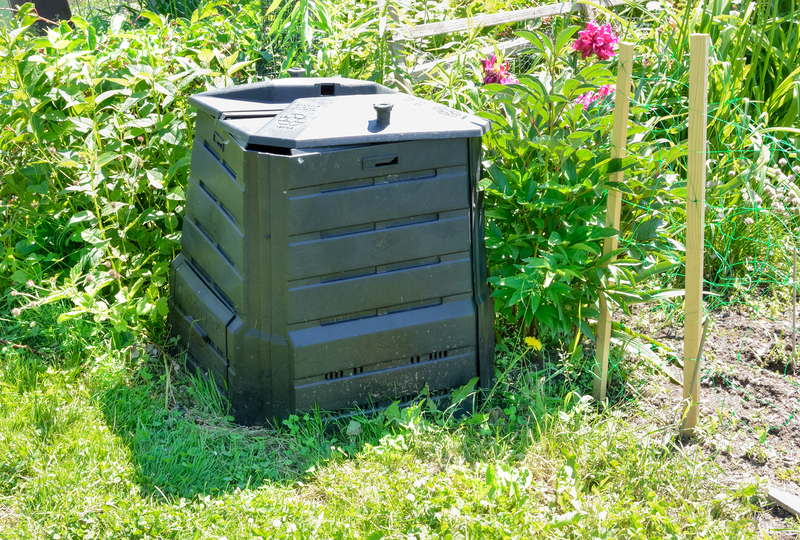Creative Ways to Responsibly Dispose of PPE Waste Near You
The COVID-19 pandemic has triggered a massive surge in personal protective equipment (PPE) use worldwide. From masks and disposable gloves to face shields and gowns, these lifesaving items are now an integral part of daily routines. However, the enormous increase in PPE waste presents a serious environmental challenge. Improper disposal of used masks, gloves, and other protective gear can endanger wildlife, pollute ecosystems, and threaten public health.
How can you ensure your PPE waste isn't just piling up in local landfills or, worse, harming the environment? If you're searching for creative and responsible ways to dispose of PPE waste near you, this comprehensive article provides innovative solutions, community initiatives, and practical tips to make a meaningful difference.
Why Is Responsible PPE Waste Disposal Important?
- Environmental Protection: PPE products are typically made from plastics and synthetic fibers, which can take hundreds of years to break down, releasing microplastics and toxins during degradation.
- Wildlife Safety: Discarded masks and gloves can entangle animals or be ingested, causing life-threatening injuries.
- Public Health: Improper disposal increases the risk of cross-contamination and the spread of infectious diseases.
- Community Cleanliness: PPE litter detracts from the beauty and hygiene of neighborhoods, parks, and streets.

Types of PPE Waste People Commonly Use
- Disposable Face Masks (surgical, N95, etc.)
- Latex or Nitrile Gloves
- Face Shields
- Protective Gowns
- Sanitary Wipes or Antiseptic Towelettes
- Hand Sanitizer Bottles
Understanding the Challenges of PPE Waste Disposal
PPE waste is considered hazardous because it may be contaminated with pathogens. Most municipal recycling programs do not accept used PPE due to safety risks and the complex materials they contain. This limitation often results in PPE being thrown in regular trash bins or littered in public spaces.
Key Problems
- Not all PPE is made from recyclable materials
- Potential health risks for sanitation workers
- Improper sorting can contaminate the recycling stream
- Lack of public knowledge and designated PPE disposal points
1. Dedicated PPE Collection Points in Your Community
Many cities and organizations have set up special bins or collection points specifically for PPE waste disposal. These are typically found at:
- Hospitals and health clinics
- Supermarkets and shopping centers
- Public transit stations
- Pharmacies
- Community centers and local councils
How to use them responsibly:
- Do not overfill bins; ensure your mask or glove is securely contained before disposing.
- Never toss used PPE in regular recycling bins unless explicitly allowed.
- Look for signs that indicate designated PPE waste bins.
2. Terracycle and Other PPE Recycling Programs
If you're committed to finding eco-friendly solutions, specialized recycling programs like TerraCycle offer a sustainable alternative. TerraCycle partners with businesses and communities to collect hard-to-recycle PPE waste such as masks and gloves, then processes them into usable materials for industrial products.
-
How to participate:
- Sign up for a TerraCycle PPE Zero Waste Box.
- Collect your used PPE at home, work, or school.
- Seal the box and return it to TerraCycle for processing.
Search online for other local recycling or upcycling initiatives accepting PPE waste in your area.
3. Sanitize and Store: DIY Upcycling Projects
While not all PPE can be recycled or reused, upcycling provides a creative way to repurpose certain clean items. Always ensure items are sanitized first. Here are a few ideas:
- Art Projects: Use clean, unused masks or gloves in collages or sculptures.
- Gardening: Repurpose empty hand sanitizer bottles as plant waterers or seedling protectors.
- Crafting: Create local awareness displays with used PPE to spread the message about responsible disposal.
Never use obviously soiled or contaminated PPE for DIY projects.
4. Participate in Local PPE Waste Drives
Many environmental groups organize PPE waste collection and clean-up events. These initiatives often provide education about responsible disposal and even rewards for participation.
- Join local Facebook groups or community boards to learn about upcoming PPE recycling events.
- Partner with local schools to promote PPE collection campaigns.
- Volunteer at environmental clean-ups where PPE litter is collected and properly disposed of.
5. Composting (Where Suitable)
Most disposable PPE is not compostable due to its synthetic makeup. However, some innovative companies and researchers have developed biodegradable masks, gloves, and wipes that can be composted under the right conditions.
- Always check the product label to determine if your PPE is compostable.
- Local composting facilities may accept biodegradable PPE waste. Contact them directly for guidance.
- Never compost traditional masks or gloves at home unless your compost can reach high temperatures and specifically allows these materials.
6. Promote Reusable PPE Alternatives
One path toward reducing PPE waste is switching from disposable to reusable gear where possible.
- Opt for washable cloth masks or reusable gloves when they meet safety guidelines.
- Properly sanitize reusable PPE between uses, following health authority guidelines.
- Donate or repurpose old cloth masks as cleaning rags when they're no longer safe for use.
The Dangers of PPE Waste Littering and Irresponsible Disposal
When PPE litter finds its way onto sidewalks, beaches, and natural reserves, it creates a long-term environmental hazard. Microplastics from synthetic fibers contaminate soil and water, while birds and marine life risk injury or death from ingestion or entanglement.
- Remember: PPE waste can remain in the environment for decades or centuries unless properly disposed of.
- Community education and awareness are vital to stopping the spread of PPE litter.
What Should You Absolutely Not Do With PPE Waste?
- Never flush masks, gloves, or wipes down toilets.
- Do not toss used PPE into recycling bins (unless advised by your local authority).
- Avoid burning PPE at home due to toxic fumes.
- Do not discard PPE in public places or nature reserves.
How Can You Organize a PPE Waste Disposal Campaign Near You?
- Contact your local government or environmental services to suggest PPE disposal bins in high-traffic areas.
- Partner with schools, businesses, and healthcare providers to promote proper PPE waste separation and collection.
- Host educational workshops to teach your community about the dangers of improper PPE disposal.
- Use social media and local newspapers to spotlight PPE cleanup events.
- Collaborate with sanitation workers to ensure their safety and address logistics for responsible disposal.
Innovative Technologies in PPE Waste Management
As the world looks to tackle the growing PPE waste problem, several innovative technologies have emerged:
- Autoclaving: Used by hospitals, this process sterilizes contaminated PPE before safe disposal or recycling.
- PPE Shredding and Conversion: Special machines convert sanitized PPE into plastic pellets used in construction or road-building.
- Pyrolysis: A high-temperature process that turns PPE waste into oil or gas for energy production.
Support businesses and organizations in your area that invest in such sustainable PPE waste management technologies.
Frequently Asked Questions About PPE Waste Disposal
Can you recycle used face masks and gloves?
No, most disposable masks, gloves, and wipes cannot be processed in household recycling bins because of contamination and material complexity. Instead, look for dedicated PPE recycling initiatives or disposal points.
What if I don't have access to a dedicated PPE disposal location?
Always dispose of used PPE in a sealed bag in your regular trash to prevent the spread of contaminants. If available, look for special municipal collection programs or mail-in services.
Are there eco-friendly PPE options?
- Biodegradable masks and gloves: Research brands that use plant-based materials which break down in home or industrial composting.
- Reusable PPE: Washable masks and gloves cut down on waste volumes.
How do I know if my mask or glove is compostable?
Check for certification labels that indicate compostability, such as ASTM D6400 or EN 13432. Local composting guidelines vary, so always confirm before disposal.

Spread the Word: Community Education and PPE Waste
One of the most effective ways to tackle the PPE waste crisis is through community education. Share accurate information about local disposal methods, participate in awareness campaigns, and encourage others to take responsibility for their waste.
Ideas to Engage Your Community:
- Hold a local art contest to highlight PPE waste in creative ways.
- Partner with local schools for PPE recycling education days.
- Use your social networks to share tips on where and how to safely dispose of PPE nearby.
Final Thoughts: The Key to Responsible and Creative PPE Waste Disposal
The challenge of PPE waste is not going away soon, but with innovative solutions, proactive community action, and commitment to responsible disposal, everyone can be part of the answer.
- Look for (or create) PPE waste collection programs and disposal points near you.
- Explore recycling and upcycling opportunities where safe and appropriate.
- Promote or switch to reusable PPE options to minimize waste from the start.
- Educate others about the dangers of improper disposal and the benefits of safe, creative alternatives.
- Demand more sustainable PPE designs and recycling infrastructure from manufacturers and policymakers.
When we all work together, creative and responsible PPE waste management doesn't just protect our environment and communities--it inspires a more sustainable future for everyone. So start today: discover the best ways to dispose of your PPE waste near you, and encourage others to join the movement!
